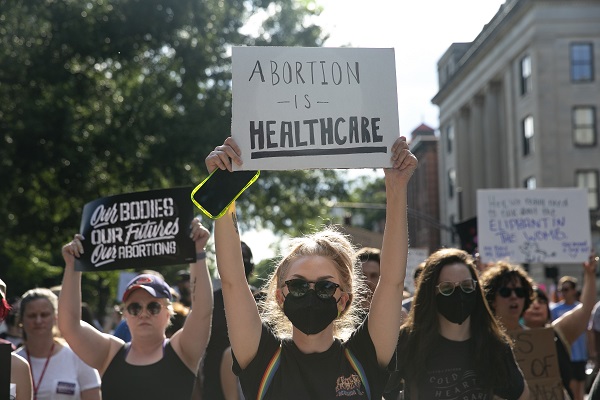By Avi Bajpai
The News & Observer U.S. District Judge Eagles bulletin news
(The News & Observer) — A federal judge struck down a provision of North Carolina’s new abortion law and upheld another on Friday.
The main thrust of the GOP-passed law banning most abortions in the state after 12 weeks of gestation went into effect last July and has not been successfully challenged in the courts.
But abortion providers targeted two provisions of the law, which have been temporarily blocked since September.
In a ruling issued Friday evening, U.S. District Judge Catherine Eagles struck down one provision as “unconstitutionally vague.” The provision had required physicians prescribing medication abortions to document the existence of a pregnancy within the uterus during the early stages of gestation.
But Eagles ruled to keep a second provision in place that required anyone trying to terminate their pregnancy after 12 weeks to have the procedure in a hospital. That provision addresses abortions taking place under one of the law’s exceptions for rape and incest, fetal anomalies, or if “a qualified physician determines there exists a medical emergency.”
(Please click onto the image of the cat to hear Oldies & Classic Rock)

For the first provision, Eagles agreed with concerns from abortion providers who challenged the law. They argued that the provision doesn’t give guidance on how to satisfy the requirement, and could block physicians from prescribing abortion pills early in pregnancies, when an embryo may not be able to be located using an ultrasound.
U.S. District Judge Eagles bulletin news
In her order, Eagles agreed that the requirement doesn’t give physicians “sufficient notice of the required conduct,” and “does not include sufficient standards to prevent arbitrary and discriminatory enforcement.” Eagles said the provision violates the due process rights of the plaintiffs.
Granting a preliminary injunction temporarily blocking the two provisions from being enforced in September, Eagles said that the restriction on medication abortions didn’t provide physicians with “a clear standard,” was “open to differing interpretations,” didn’t provide “reasonable notice of what is prohibited,” and could subject physicians to “arbitrary accusations that they have violated the provision.”
In her ruling on the hospitalization requirement, Eagles sided with GOP legislative leaders who intervened in the case to defend the law.
She said that abortion providers “have offered credible and largely uncontroverted medical and scientific evidence that this requirement is unnecessary to protect maternal health and safety and will unnecessarily make such abortions more dangerous for many women and more expensive.”

However, she said, after the U.S. Supreme Court overturned Roe v. Wade, “there is no fundamental right to abortion.”
That means that GOP lawmakers only needed to show “rational speculation” for their “legislative decisions regulating abortion.”
U.S. District Judge Eagles bulletin news
Eagles said Republican leaders had done so, and abortion providers “have not negated every conceivable basis” lawmakers had for enacting the requirement.
The lawsuit was filed by Planned Parenthood and a Triangle OB-GYN last June, just weeks before the 12-week ban went into effect.
Abortion providers initially asked Eagles to grant a temporary restraining order blocking the entirety of the new law while the court challenge over specific provisions proceeded. But the judge, nominated by former President Barack Obama in 2010, allowed the law to go into effect, temporarily blocking only the restriction on medication abortions.
Last month, Eagles issued her final ruling in a separate lawsuit filed by another OB-GYN in January 2023, challenging state regulations on medication abortion.
The ruling permanently blocks several requirements under state law for prescribing and administering abortion pills, which Eagles said were preempted by federal law.
©2024 The News & Observer. Visit at newsobserver.com. Distributed at Tribune Content Agency, LLC.
U.S. District Judge Eagles bulletin news


